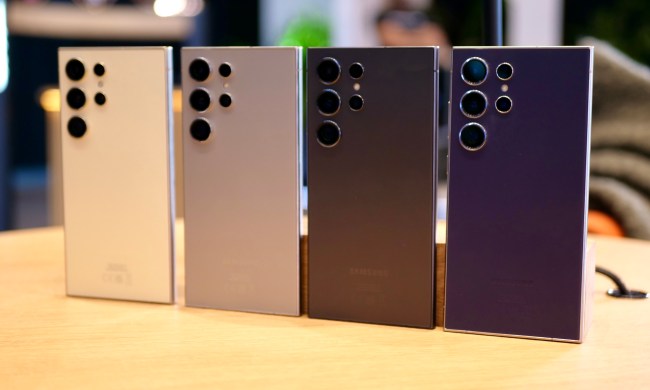
It February, a mystery Samsung device with the model number SM-G615F was spotted on benchmarking website GFXBench. The listing shows a handset with a 5.7-inch 1080p display, a 2.3GHz MediaTek Helio P20 processor paired with 3GB of RAM, and 32GB of internal storage. It sports a 12-megapixel camera on the front and back and runs the latest version of Android 7.0 Nougat.
Details about the yet-to-be-announced smartphone are hard to come by. We don’t know when it’s likely to be announced or even which of Samsung’s phones it will replace. SamMobile points out that Samsung referred to the original Galaxy On7 and On7 (2016) as the SM-G600 and SM-G610, respectively, suggesting the phone might be a next-generation On7. But it’s too early to say for certain.
Whichever branding the device receives, it’s a meaningful step forward in Samsung and MediaTek’s relationship. According to some reports, Samsung worked with the chip supplier to build phones running Tizen, its proprietary mobile operating system. In late 2016, MediaTek Chairman Tsai Ming-kai told the press that it was actively working with Samsung on devices that would ship in the coming months.
It’s good news for MediaTek. According to analyst Arisa Liu at the Taiwan Institute of Economic Research, the chip maker’s global market share could substantially increase as a result of its relationship with Samsung, which is expected to order “as much as 10 percent” of MediaTek’s processors this year.
Qualcomm’s travails could have something to do with it. In December, the Korea Fair Trade Commission sued the electronics behemoth for allegedly violating antitrust laws in the way that it licenses its patents and sells modems for smartphones and other devices. According to the Korea Fair Trade Commission (KFTC), Qualcomm uses its dominance in the industry to elbow out the competition. Manufacturers are given a choice: Either pay inflated royalties for the use of Qualcomm’s essential patents or face intellectual property lawsuits.
Following the KFTC’s filing, the U.S. Federal Trade Commission filed suit, as did iPhone maker Apple. Both contended that Qualcomm required that Apple pay a percentage of the revenue it made for the iPhone, iPad, and other devices in return for the use of Qualcomm’s patents.
Qualcomm denies the allegations.


